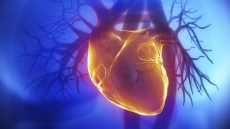Cancer grows and spreads in the body at night, shows a study, suggesting that it could be more efficient to administer certain anti-cancer drugs at night.
A hormone, generally referred to as stress hormone that keeps us alert, also suppresses the spread of cancer receptors, the findings showed.
“Cancer treatments are often administered in the daytime, just when the patient's body is suppressing the spread of the cancer on its own,” said co-researcher Yosef Yarden from Weizmann Institute of Science in Israel.
“What we propose is not a new treatment, but rather a new treatment schedule for some of the current drugs,” Yarden added.
This finding arose out of an investigation into the relationships between different receptors in the cell.
The receptors - protein molecules on the cell's surface or within cells - take in biochemical messages secreted by other cells and pass them on into the cell's interior.
The scientists focused on two particular receptors.
The first, the epidermal growth factor receptor, EGFR, promotes the growth and migration of cells, including cancer cells.
The second binds to a steroid hormone called a glucocorticoid (GC).
Glucocorticoids play a role in maintaining the body's energy levels during the day, as well as the metabolic exchange of materials.
Cell migration - the activity promoted by the EGF receptor - is much more active during sleep and quiescent during waking hours, the study conducted in mice showed.
The findings were published in the journal Nature Communications.





